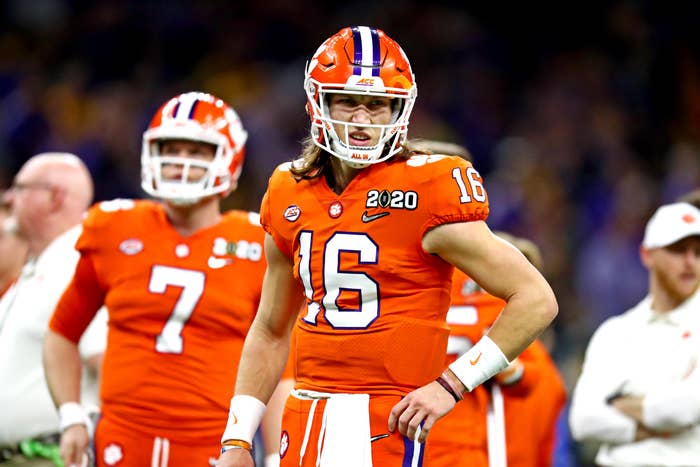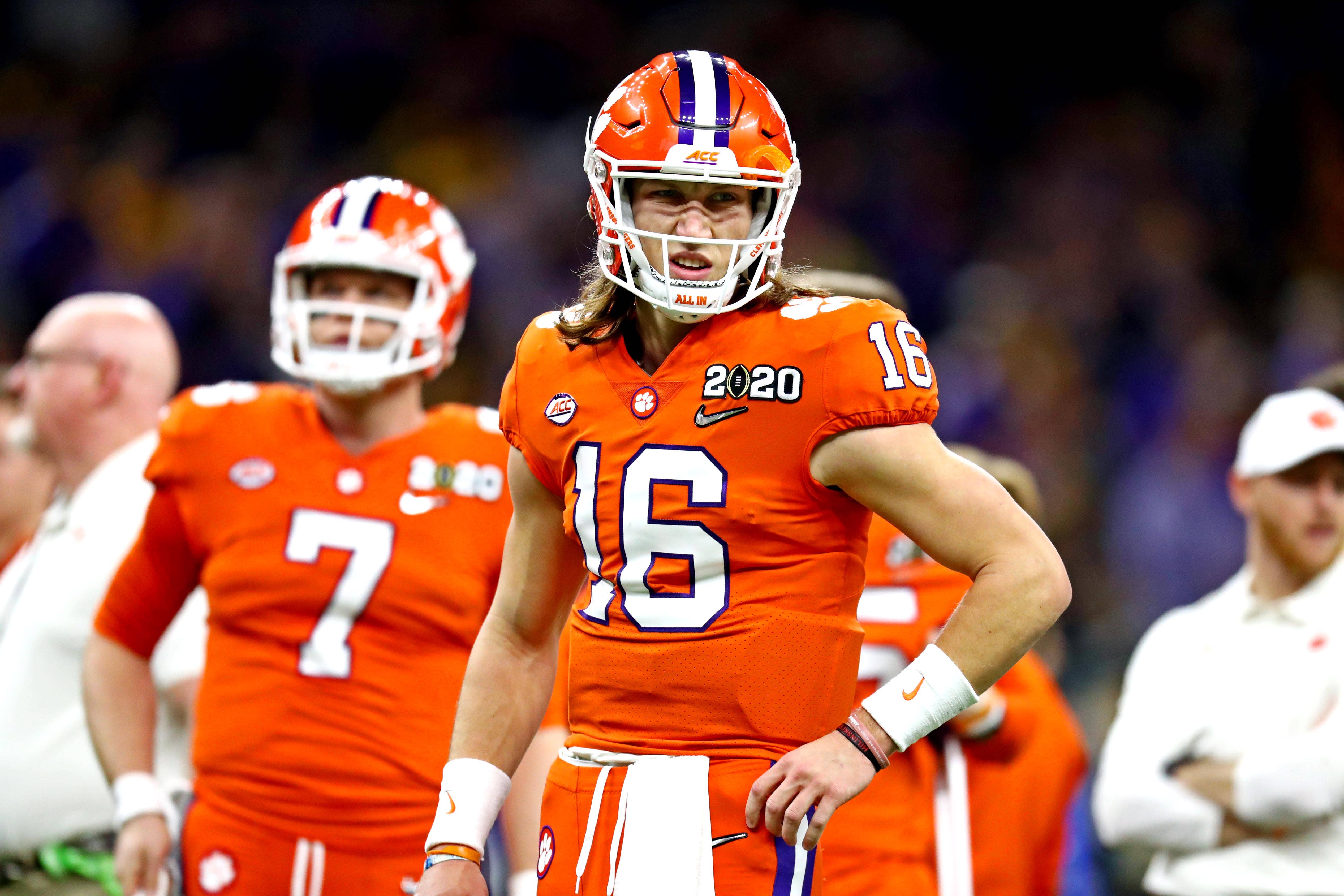
College athletes could soon be on their way to getting paid like never before. At least that’s the hope.
The NCAA isn’t completely revamping its archaic ways, but the much-maligned governing body took an important step Wednesday when it announced its board of governors recommends changes to its controversial name, image, and likeness rules. The changes that should pave the way for athletes to profit from their notoriety won’t happen overnight, but the NCAA said it is supporting alterations that could soon allow student-athletes to “receive compensation for third-party endorsements both related to and separate from athletics.”
It looks like the days of student-athletics being penalized for selling an autograph, collecting ad revenue from a YouTube channel, or partnering with a local business appear to be over. Took ‘em long enough.
“The NCAA’s work to modernize name, image, and likeness continues, and we plan to make these important changes on the original timeline, no later than January 2021,” Gene Smith, Ohio State AD and co-chair of the NCAA federal and state legislation working group, said in a statement. “The board’s decision today provides further guidance to each division as they create and adopt appropriate rules changes.”
In a 31-page report, the NCAA outlined extensively all the intricacies of the new rules. Comb through if you’re into all that legalese. But what does it all boil down to? And—most interestingly to many—do the changes hint at a return of the beloved NCAA Football video game series? Here’s a brief breakdown:
What’s changing
While the rules changes need to be ratified and implemented by Divisions I, II, and III, it looks like starting with the 2021-22 academic year, athletes can use their name, image, or likeness to profit in ways that previously would have almost certainly led to the loss of their eligibility.
That means student-athletes like former UCF football player Donald De La Haye, who we profield back in 2017 when he was told by the NCAA to give up his money-making YouTube channel if he wanted to remain eligible to play on Saturdays, won't have to make unnecessary concessions non-athletes at member institutions are never be subjected to.
Examples of how athletes will soon cash-in on their name, image, or likeness include as social media influencers, creating and maintaining businesses, profiting from their talents away from the field of play, or endorsing businesses or services on TV and radio.
Most notably, there is no ceiling on how much an athlete can earn on the side.
It won’t be the Wild West
The NCAA is still putting parameters on what it’ll allow.
Athletes can’t use conference or school images (or any kind of intellectual property) in any endorsements.
Conferences and schools can’t sign athletes to endorsement deals. Nor can they arrange endorsements. Athletes can only do business with a third-party and have to find the opportunities themselves.
The endorsements can’t be used by a school, or even by boosters on the low, as a way to pay for an athlete’s way.
Other important guardrails (and there many are laid out) that must be finalized include:
- That endorsements are independent of athletic performance and participation
- Athletes will almost assuredly not be permitted to endorse or partner with alcohol, tobacco, or gambling entities
- What restrictions are placed on sneaker and apparel companies or will they be outright forbidden from agreeing to endorsement deals with athletes based on "their history of encouraging or facilitating recruiting and other rules infractions"
- What framework will be instituted so student-athletes can safely consult with professionals about tax and legal proceedings that's consistent with federal and state laws
- Agreements can’t interfere with the NCAA’s goals of diversity, equality, and inclusion
“As we evolve, the Association will continue to identify the guardrails to further support student-athletes within the context of college sports and higher education,” Val Ackerman, Big East commissioner and NCAA working group co-chair, said in a statement. “In addition, we are mindful of the impact of the COVID-19 pandemic on higher education, college sports and students at large. We hope that modernized name, image and likeness rules will further assist college athletes during these unprecedented times and beyond.”
Is ‘NCAA Football’ returning?
The NCAA wouldn’t go as far as to recommend changes to its foundational group licensing rules. That's important news for gamers.
Basically, the NCAA concluded for the time being that group licensing programs that are advantageous to professional sports leagues are “not available to the NCAA or its member institutions, namely the presence of a player’s association to serve as a bargaining unit for the athletes.” The report read:
None
The NCAA says it must continue to lobby Congress to enact federal changes to name, image, and likeness laws to override specific states that want to institute their own, like California. The NCAA will also continue to want protection from NIL lawsuits. Group licensing was ultimately identified as “unworkable” by the Indianapolis-based governing body, therefore, don’t expect the return of EA Sports’ NCAA Football franchise anytime soon.

